Self-Regulation Measurement Study
The Learning-Related Cognitive Self-Regulation School Readiness Measures for Preschool Children Study (which we call the Self-Regulation Measurement Study), was designed to identify measures of learning-related cognitive self-regulation for Pre-K children that are 1) predictive of their achievement gains and 2) easily used in Pre-K settings (portable, did not require computer administration). Such measures are in great need for screening Pre-K children to identify those with weak cognitive self-regulation skills that put them at risk for poor academic achievement and for tracking improvements in cognitive self-regulation that result from classroom practices aimed at facilitating those skills.
This project consisted of two phases or waves. The goal of Phase One was to develop a child assessment battery and parallel teacher rating instrument that best meet the above criteria. For this phase, children from 58 classrooms in 38 Middle Tennessee public schools and United Way funded preschool centers were assessed using the candidate measures of self-regulation. These schools and centers included a mix of urban, suburban, and rural preschool settings and provided an ethnically diverse sample of preschool children. Children were directly assessed in 3 sessions during the fall (mean age 54.56 months) and spring (mean age 60.67 months) of the Pre-K school year on 10 measures of self-regulation along with 5 subtests from the Woodcock-Johnson Tests of Achievement (WJ-III). Participants’ teachers also provided behavioral ratings of self-regulation for each participating child concurrently with these assessments.
These children were assessed again at the end of kindergarten on a refined set of 6 measures of self-regulation and a condensed version of the behavioral ratings completed by their teachers. Due to the reduction in self-regulation measures utilized during this follow-up, the number of assessment sessions with each child was reduced from 3 to 2.
The goal of Phase Two was to cross-validate the refined child assessment battery and the parallel teacher rating instrument developed in Phase One. Phase Two involved a new sample of children drawn from a subset of the classrooms used in Phase One. After all consents were received, the study sample was randomly selected at the classroom level. Children were directly assessed in the fall and spring of the Pre-K year with the refined battery of 6 measures of self-regulation and all Phase One WJ-III subtests. Likewise, teachers were asked to complete the condensed version of the behavioral ratings developed in Phase One. In addition, during the fall of the Pre-K year, we also retested all children two weeks after their initial testing date using only the 6 self-regulation measures (test-retest reliability). We also asked teachers to complete the behavioral ratings again two weeks after their initial set of fall ratings were complete.
What is Self-Regulation?
Self-regulation is the ability of children and adults to exert control over their attention, thoughts, and behaviors in order to achieve a goal. Children control their behavior to achieve goals in two ways: 1) by inhibiting behaviors that will impede a goal and 2) by performing behaviors that align with the goal. In school everyday children are required to exert self-regulation if they are to benefit from the learning experiences in the classroom. For example, children must inhibit their desire to continue with one activity when it is time to shift to something else, but they must also fully engage their attention in each learning activity as it occurs.
Of particular interest to the Self-Regulation Measurement Study was cognitive self-regulation, which includes the ability to deliberately control the quality, sequence, and persistence of task-related behavior and thoughts. Some research evidence suggests that cognitive self-regulation among Pre-K children may be second only to emergent literacy and math skills as predictors of later reading and math achievement.
The Self-Regulation Measurement Study was designed around six key cognitive skills:
- Attention focusing—the capacity to attend to and sustain focus on a learning task.
- Inhibitory control—the ability to suppress inappropriate off-task responses to distracting stimuli in a classroom environment.
- Patience—the ability to wait when required by a learning task and not respond impulsively or prematurely.
- Attention shifting—the ability to shift focus appropriately within a given learning task and from one task to another as situations demand.
- Organizing skills—the ability to follow directions, engage in planning, and organize sequences of behavior.
- Working memory—the ability to temporarily store and manage the information required to carry out a task.
Child Assessment Measures used in this study:
- Peg Tapping
- Head Toes Knees Shoulders (HTKS)
- Copy Design
- Dimensional Change Card Sort (DCCS)
- Kansas Reflection-Impulsivity Scale for Preschoolers (KRISP)
- Digit Span
- Turtle Rabbit
- Operation Span
- Spatial Conflict
- Whisper
- Woodcock Johnson III (WJ-III) tests of achievement
For more information on the measures of self-regulation used in this study as well as the selection process used to identify these measures, please see our page entitled: Child Assessment Measures
Click here to view the order of assessment administration by phase and timepoint
Study Participants:
The Self-Regulation Measurement study was fortunate to have participants from 6 school systems in Tennessee including: Franklin Special School District, Lebanon Special School District, Murfreesboro City Schools, Rutherford County School System, and Wilson County School District as well as five United Way community child care centers in Davidson County.
Study Timeline:
This timeline shows the Wave 1 and Wave 2 Child Assessments and Behavioral Ratings in which students and teachers participated.
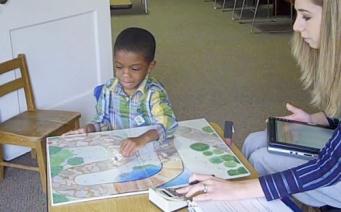
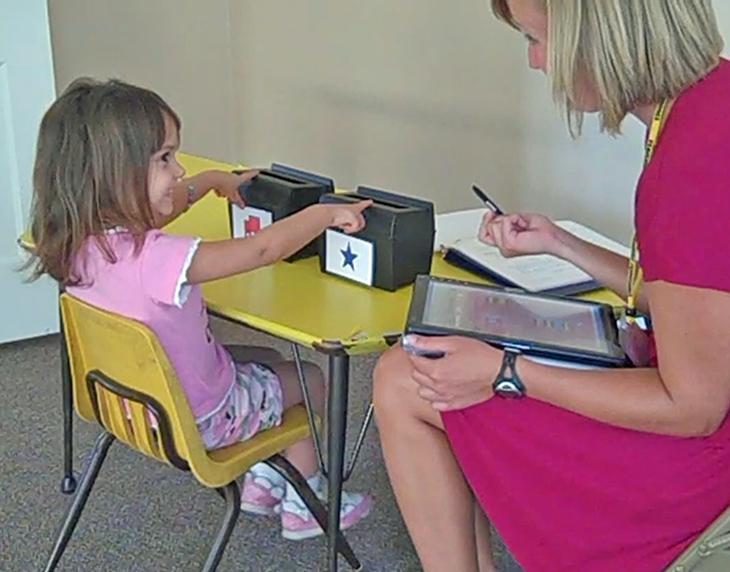
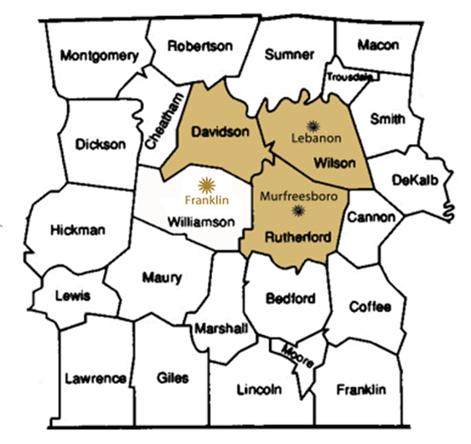
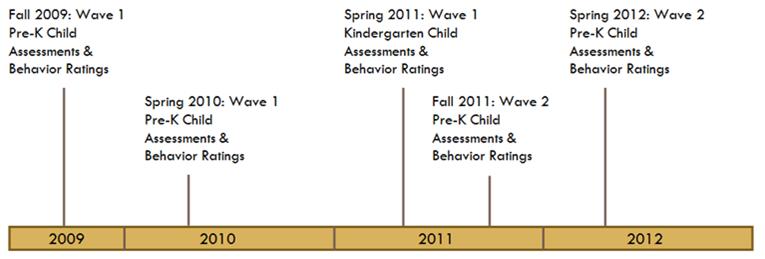
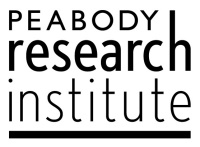
©2026 Vanderbilt University · This research project was supported by the Institute of Education Sciences, U.S. Department of Education, through Grant R305A090079 awarded to Mark Lipsey and Dale C. Farran at Vanderbilt University at the Peabody Research Institute.
Site Development: University Web Communications